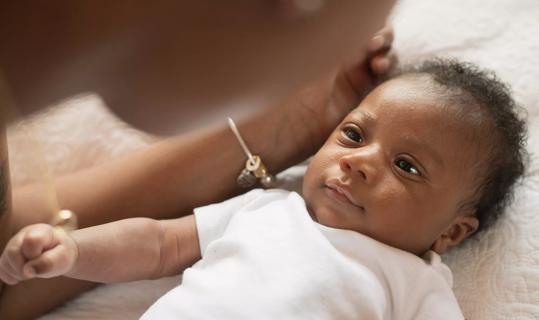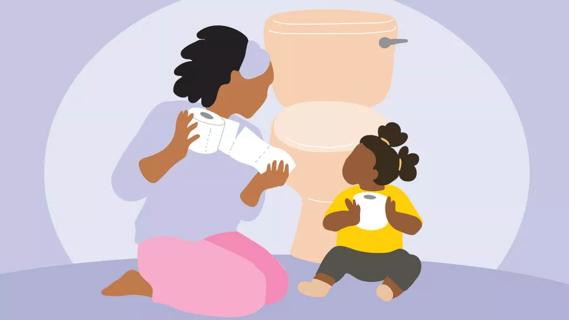Advertisement
Milestones to watch for between well-child visits

Your firstborn is a Chatty Cathy who spoke in complete sentences by 24 months. Your second kid — not so much. Her vocabulary consists of grunts and groans rather than words.
Advertisement
Cleveland Clinic is a non-profit academic medical center. Advertising on our site helps support our mission. We do not endorse non-Cleveland Clinic products or services. Policy
All kids are different, but this seems off. Should you add “worry about Alice” to your overflowing task list?
“Development includes motor skills, language skills and social skills,” says pediatrician Minh-Y Canh, DO. “Your child may fall into a wide range of what’s considered normal, but there’s often little reason to be concerned.”
Here’s what to look for in between pediatrician appointments to know if your toddler is on track. Keep in mind: These are averages, so your child may be ahead of or behind the goal.
Your child’s pediatrician will expect your child to meet these milestones:
If your child has a speech delay:
The delay isn’t necessarily developmental: “Impaired hearing can cause a speech delay, so we’ll want to evaluate speech and hearing abilities,” says Dr. Canh.
Delayed speech can result in temper tantrums or behavior issues because kids have difficulty communicating their needs. Dr. Canh says speech therapy can make a big difference for these children.
Your child’s pediatrician will expect your child to meet these milestones:
If your child has a social delay:
See the big picture. Dr. Canh urges parents, day care providers and preschool teachers to look at the child holistically: “If a baby was kept at home and didn’t have much exposure to other children, they may not interact much when they enter day care or preschool,” she says. “They’re not lacking social skills — they just haven’t learned how to interact with kids. Or they may have a little anxiety they’ll need to overcome.”
In some cases, a child doesn’t socialize well at day care or preschool because they have delayed speech and can’t effectively communicate. Once again, speech therapy can come to the rescue. “Speech therapy goes a long way to helping children build social skills,” says Dr. Canh.
Advertisement
Your child’s pediatrician will expect your child to meet these milestones:
If your child has a motor skills delay:
Your child’s pediatrician will make recommendations to improve motor development — such as encouraging Grandma to let your kiddo explore more with crawling and sitting. Your child may also receive a referral to an occupational or physical therapist to work on fine motor skills (holding a spoon) or gross motor skills (walking).
“Early intervention and practice make a remarkable difference in helping kids reach future milestones. If necessary, we can also refer you to a developmental-behavioral pediatrician for an in-depth evaluation.”
When children are young, their brains are pliable so they can learn a lot, very quickly. Pediatricians want to stay ahead of the concern rather than addressing something at a later date when it’s more difficult to catch up.
“At your well visit, your child’s doctor will offer anticipatory guidance, which means we let you know what to look for between now and the next appointment,” says Dr. Canh. “If something worries you before your next visit, reach out to your pediatrician. We want to hear your concerns and talk to you to make a plan.”
Advertisement
Learn more about our editorial process.
Advertisement

Stay calm, don’t give in and try to refocus their attention

Tantrums and meltdowns are normal, but you can help your child manage their bigger emotions

Yes, it’s safe for babies starting at about 9 months old and can help clear nasal mucus

From newborn through teen years, your child’s sleep needs will change

Both terms have been replaced by autism spectrum disorder (ASD)

A consistent, structured routine, which may include incentives, can help children learn to stay in bed and get the ZZZs they need

Knowing how much time your baby should typically go between naps can help keep them on a more regular schedule

Set your child up for potty training success by waiting until they’re ready, keeping the pressure low and going heavy on the praise

Focus on your body’s metabolic set point by eating healthy foods, making exercise a part of your routine and reducing stress

PFAS chemicals may make life easier — but they aren’t always so easy on the human body

While there’s little risk in trying this hair care treatment, there isn’t much science to back up the claims